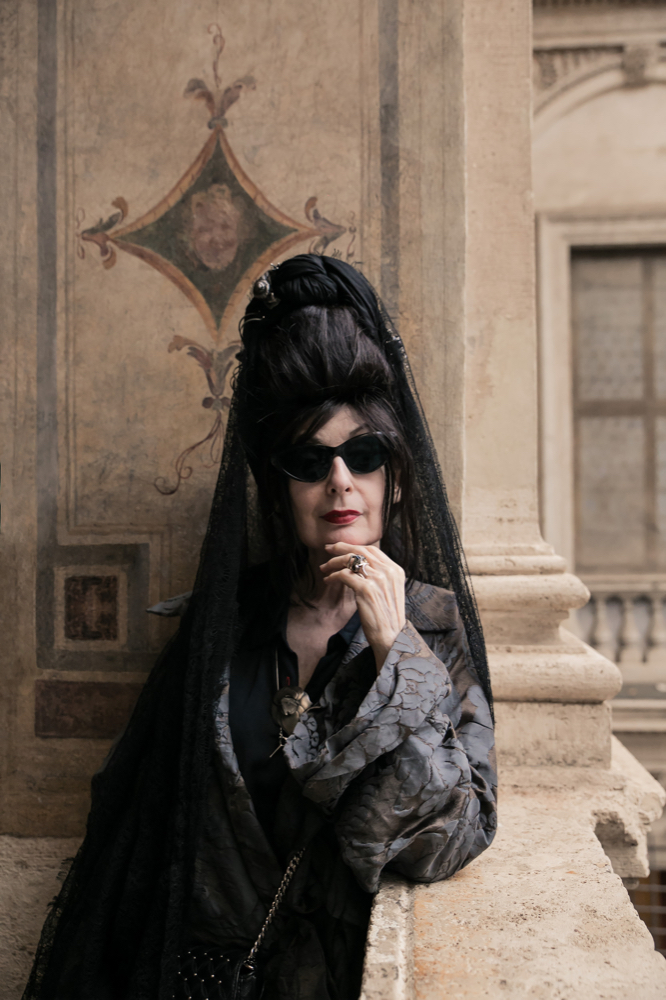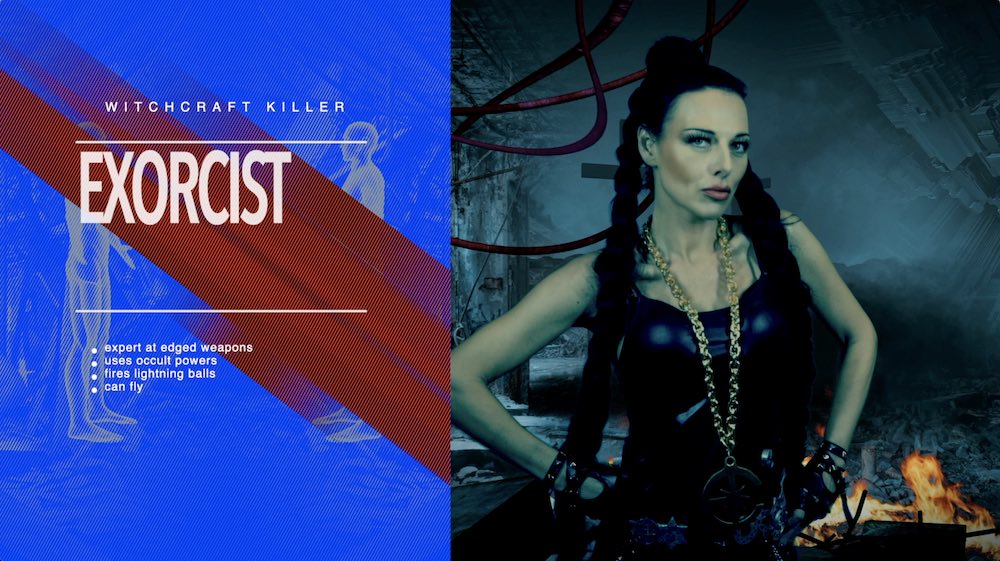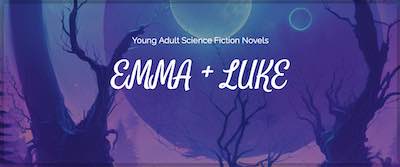24Fashion had the honor of interviewing Diane Pernet, the Paris-based iconic figure, a legend who has made a name for herself as a journalist, curator, designer, critic, and a pioneer of digital culture. From her trailblazing fashion blog, to her filmmaking and creation of A Shaded View On Fashion film festival (ASVOFF), Diane has woven together several art-forms to create something new and unique - the fashion art film as a new vehicle for designers, filmmakers, and artists to create new means of self-expressions. In the more traditional media, Diane has written for Elle.fr, Vogue.fr, and been a fashion editor for JOYCE, Hong Kong. Diane brings the sort of personal experience and perspective to any in-depth analysis of the fashion world that is unique and unvarnished. Thank you Diane, and we hope to see the entries for ASVOFF 13 for ourselves this Winter!
24Fashion TV: Diane, welcome to 24Fashion TV! We have a motto at 24FashionTV: Always be fashion! What does fashion mean to you? Style?
Diane Pernet: Ive been in fashion more than half my life so clearly it means a lot to me however the difference between fashion and style is fashion has a sell out date, that is the nature of fashion. With the current crisis that weve all lived through perhaps that idea might be changing. Style however costs nothing and is timeless. Style cannot be bought.
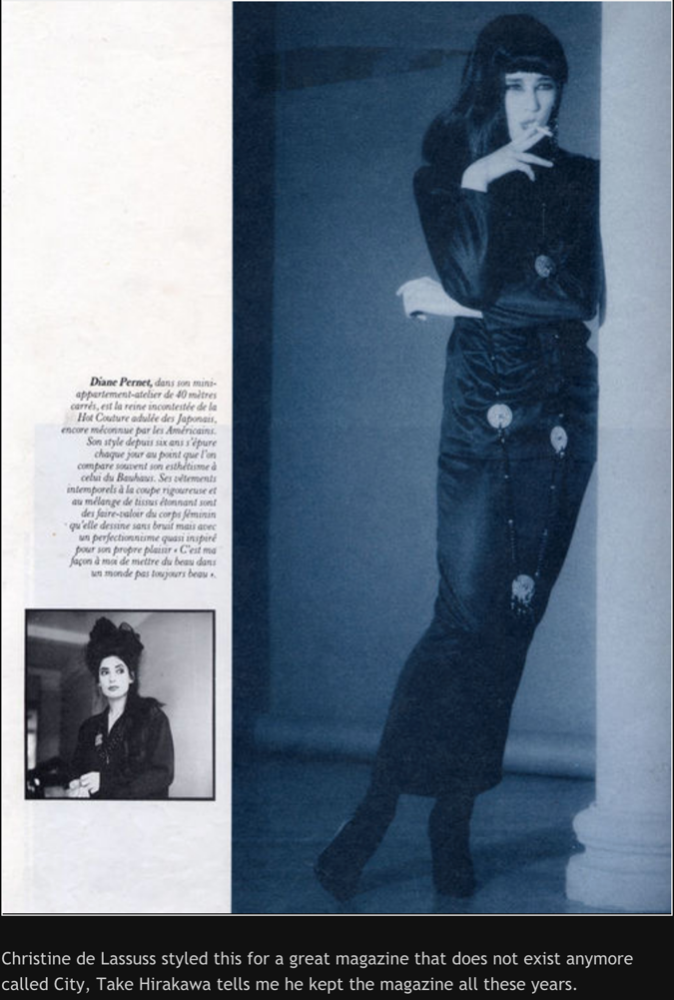
Diane Pernet in CITY Magazine, 1984
Is your personal style, the outfit we so often see you wearing, a nod to Japanese style that you are said to be so fond of?
The only nod is to myself. I do love Japanese and Belgian fashion however neither have anything to do with my personal style.
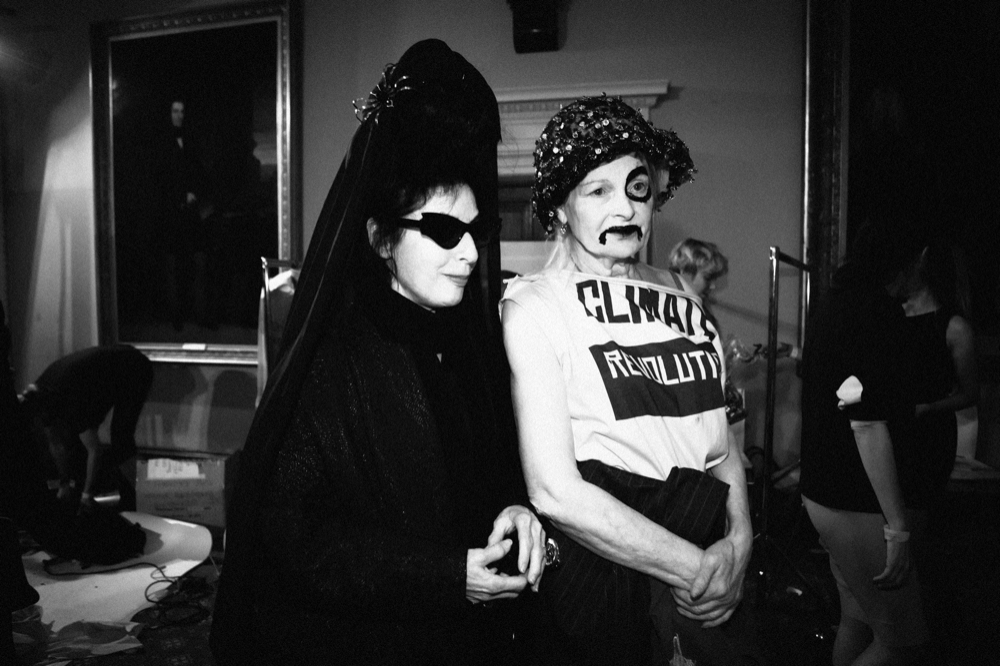
Diane Pernet and Vivienne Westwood, by Marta Lamovsek
Do you see a change in the fashion industry from the time of your firstfashion label in the 1980s?
Fashion by its very nature is constantly changing. A major change was in the 90s with deconstruction coming from Japan and Belgium afterwards. I dont think there has been a real revolution in fashion since. There is a constant repetition of various eras that go on like a hamster in a wheel. Probably the biggest change is what is happening right now with all the designer collaborations like Balenciaga and Gucci, Dior Homme and Sacai, Valentino and Craig Green and many more to come, I am sure. Kim Jones started that trend years ago with Supreme. In addition, of course there is the focus on sustainability and technology and of course, digital fashion.
Alan Mikli, Diane Pernet and Jean Paul Gaultier before ASVOFF 8 Centre Pompidou
You wrote editorial pieces for Elle and Vogueand have been a widely-heard voice in fashion how big an impact do you feel you made on the style and business of fashion?
That is a question for others to answer, not me. I will say that my opinion is respected.
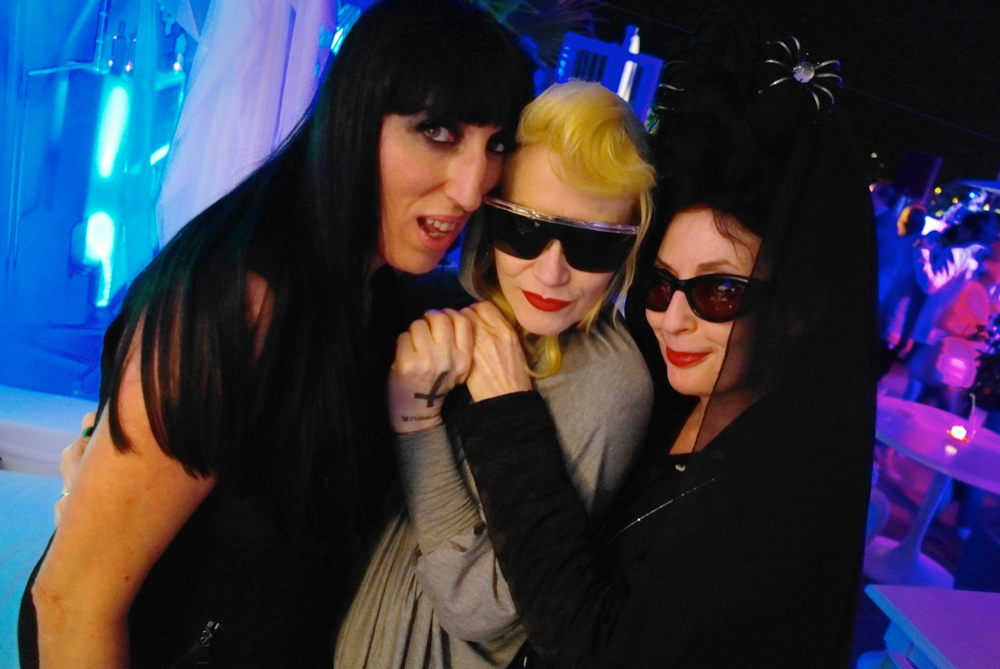
ASVOFF at Cannes 11 : Rossy de Palma, Pam Hogg and Diane Pernet. Photo by Konstantinos Menelaou.
Are there trends in recent years that you feel are revolutionary in nature? Do any specific brands or designers come to mind?
As mentioned above: digital fashion, the effect of technology on fashion and of course sustainability. COVID has caused many brands to look inward at the damage that their communications and production are causing on our planet. That is one good thing to come out of this. Most revolutionary designer of the moment is Demna Gvatsalia at Balenciaga. In the past it was Maison Martin Margiela. In terms of communication Virgil Abloh also pushes the boundaries with video games like Demna and other ventures into the metaverse as does Alessandro Micheleat Gucci. I think those are the brands that are masters at communication and communication leads the way in this century. I dont know if you call influencers revolutionary but they are the new ambassadors for brands and it seems to be working.
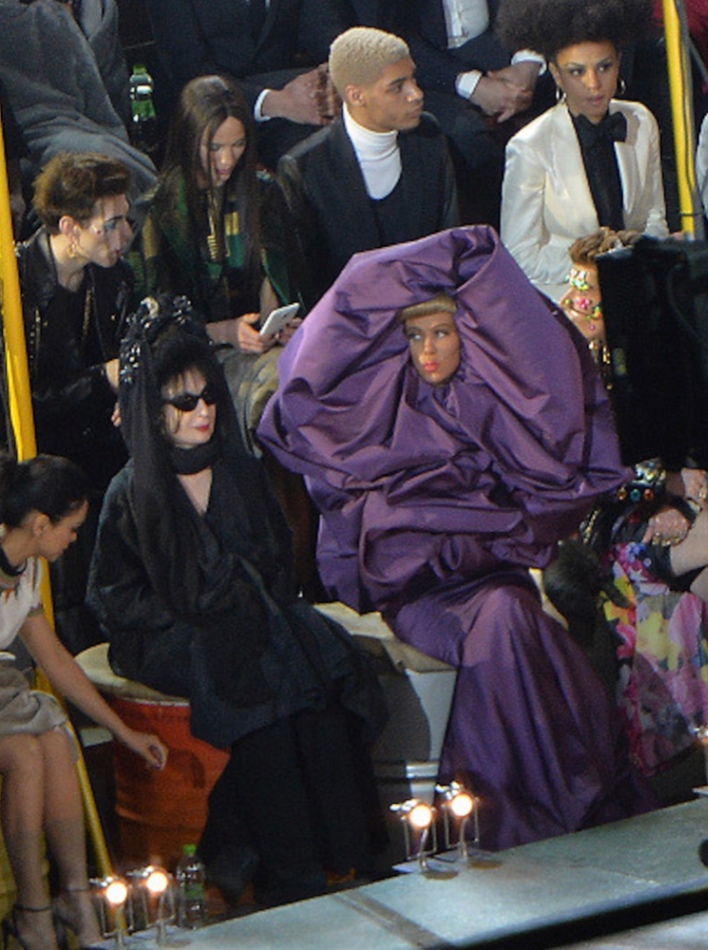
Diane Pernet at the premier of 'Zoolander 2'
Do you think the fashion business follows standard business cycles or has a periodicity of its own?
I think that designers are trying to break out of the normal business cycle. Lets see where that goes and for how long that lasts.
Your background and accomplishments make you stand out in the world of fashion.How has being a journalist, editor, blogger, documentary filmmaker, and fashion designer given youa unique vision into the business and art of fashion?
Basically, it is a 360 view on the industry. I had my own brand in New York for 13 years with a license in Tokyo, Seibu Department Store, for 5 of those years. I worked as a journalist for Elle.com, had a column called Dr. Diane where I gave styling advice, worked at Vogue.fr when Tina Isaac set up the internet site for Vogue.fr, she had been my editor at Elle.com and took me with her to Vogue.fr. I was a fashion editor for Joyce Ma, the founder of JOYCE in Hong Kong had a magazine which I worked on for 4 years, I was in contact with the buyers however that is the one aspect of fashion that I never experienced. I started the first fashion blog in February 2005 and the first annual, international fashion film festival in 2006, You Wear it Well which changed to ASVOFF in 2008. Ive made documentary short films and am in the BOF 500 Hall of Fame. I have a degree in filmmaking and studied at Parsons and FIT in New York for 9 months. I think if you put all that together, shake it up, you come up with an interesting cocktail that helped to develop my unique vision of fashion that the majority of journalists have not experienced.
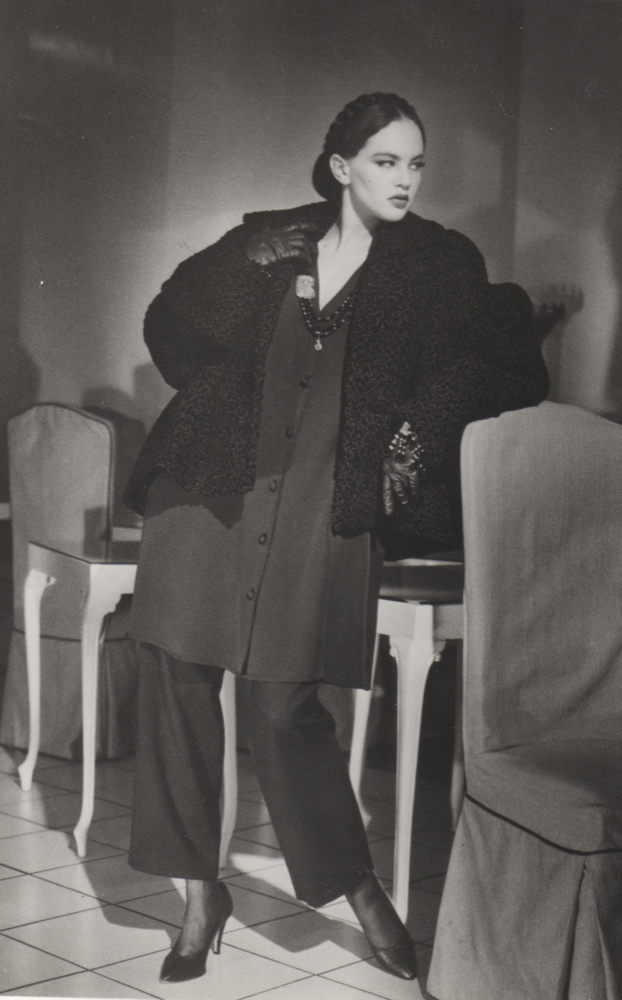
Neith Hunter in DP, photo by Zachy Sherif, 1985
Has the term avant-garde lost or changed in meaning during your time in the fashion industry? Has it lost relevance in a world where style and fashionidealsare massivelydecentralized,and tastes are changing at the speed of light, propelled by social media?I believe you called it fast fashion in the past?
Probably avant-garde does not really exist these days. The term fast fashion is current not from the past. Its a term coined for mass market, cheap prices like how can you buy a t-shirt that costs less than a sandwich and have exercised fair trade. Not possible. That is why there is a demand for transparency that fortunately is something that is gaining momentum.
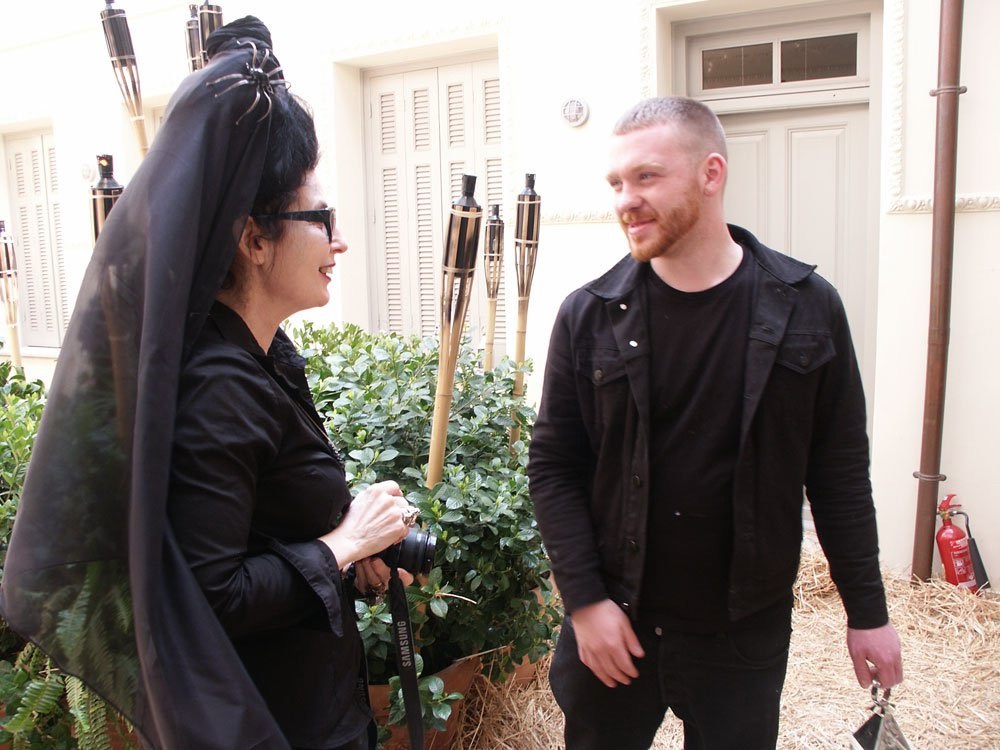
Diane Pernet with Craig Green, exhibiting his first collection in Athens.
Do you feel closer to cinema or the fashion business? Or, are the two inextricably commingled in your life?
Both have been in my life since childhood. You can say for me the two are inextricably tied together. I have a fashion film festival the two are married within that sentence alone. ASVOFF is open for submissions till the end of July. We have 3 new curations this 13th edition that we did not have before: Black Spectrum for totally black cinema productions, Digital Fashion for digital fashion and Conscious Fashion for sustainability. In addition there is the main short film category and a student film category. The ASVOFF 13 festival will be launched on my Channel on FNL Network December 3-7 and stays on line till ASVOFF 14. I have a wonderful and diverse jury: https://www.ashadedviewonfashionfilm.com. All submissions go: https://filmfreeway.com/ASVOFF
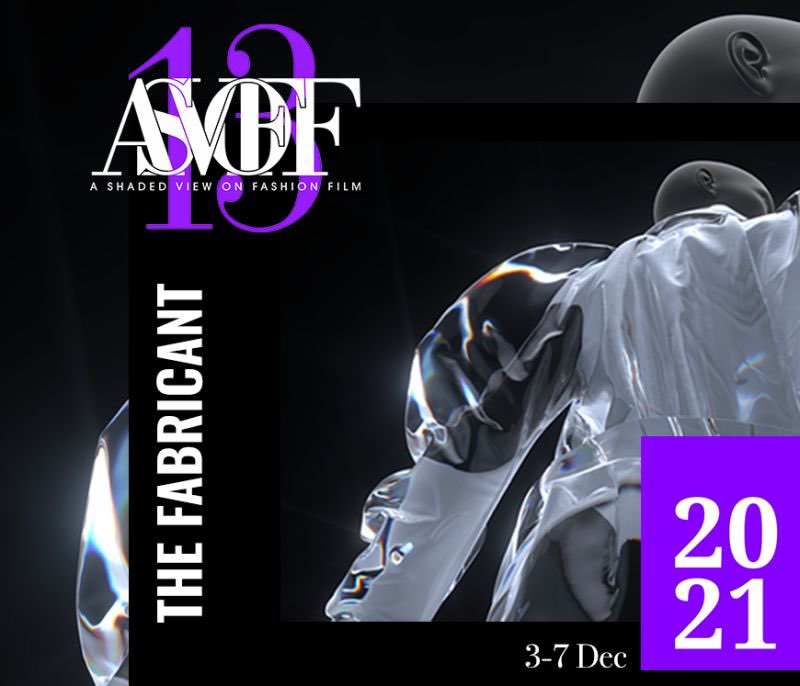
ASVOFF13
What advice would you give someonein a fashion BFA program today? What advice do you wish someone gave you back when you were starting out?
The answer to both those questions is learn more about the business of fashion or take a partner that is as good at business as you are at creativity. Imran Amed noticed the lack of business education and reporting in our industry and created the Business of Fashion and also taught business of fashion at Central Saint Martins. There previously were no business courses, now there are.
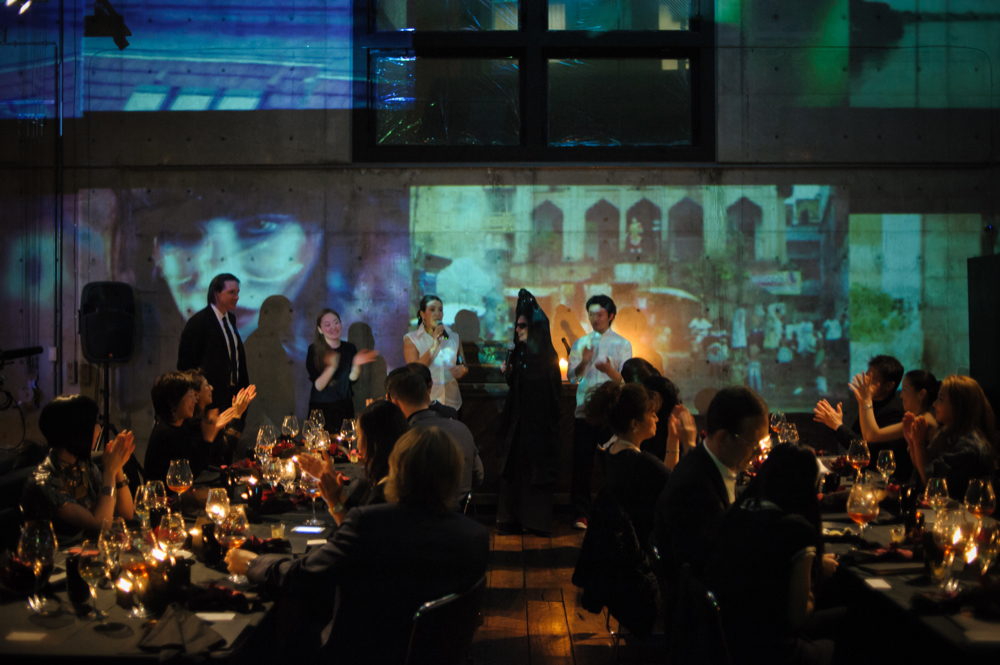
ASVOFF Tokyo Dom Perignon VIP dinner
What significance does "Shaded" play in A Shaded View on Fashion?
It is simply a play on words, shaded I wear shades and shaded as my vision of fashion and beyond.
_RIck%20Owens%20Michelle%20Lamy%20Imran%20Amed.photo%20by%20Paul%20Mouginot%20PurpleJPG_1624309804.jpg)
RIck Owens, Michelle Lamy and Imran Amed. photo by Paul Mouginot Purple.
You were one of the first bloggers on the scene in 2005 would you still recommend someone express themselves within the framework of the written word or go with a visual approach?TikTokorWordpress?
Yes, I launched my blog February 2005 when there were no fashion blogs, there were food, political and economical but no fashion blogs. I would say visual over written word.
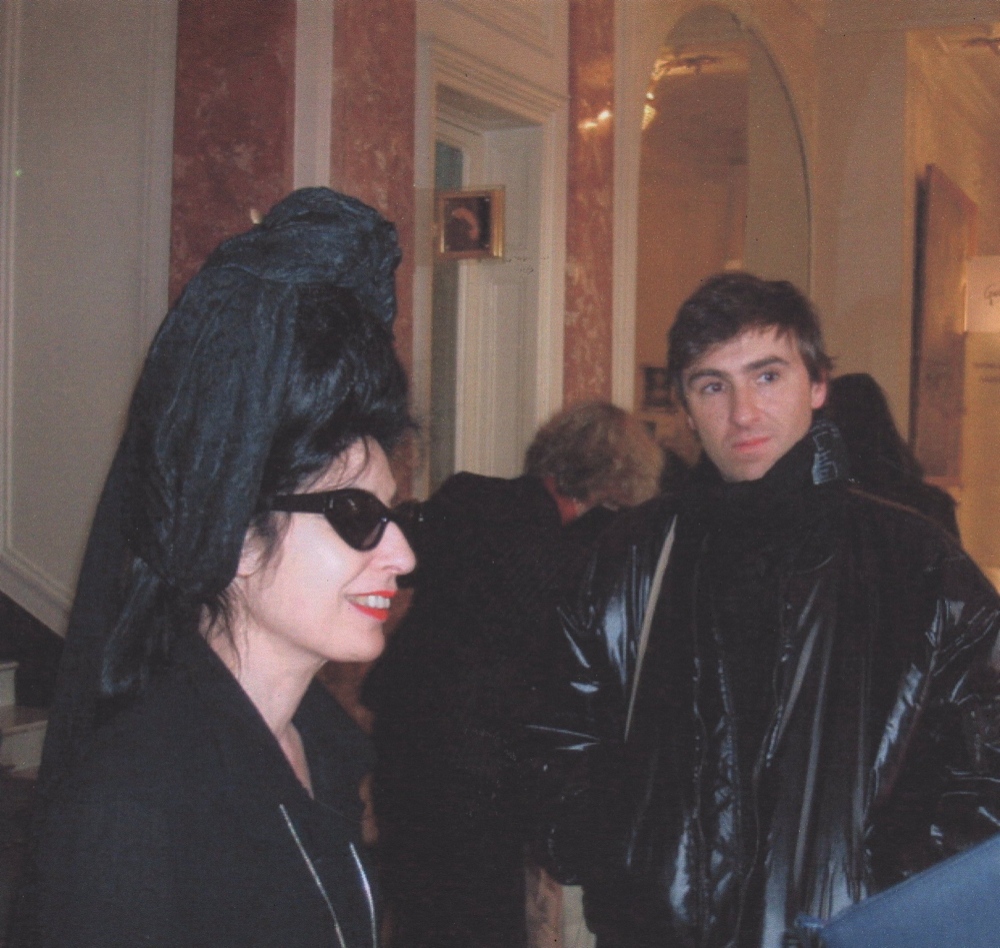
Diane Pernet and Raf Simons at Swiss Textiles, 2004
Thank you, Diane, for sharing your take on fashion and the world around it.
Editor, 24Fashion TV

